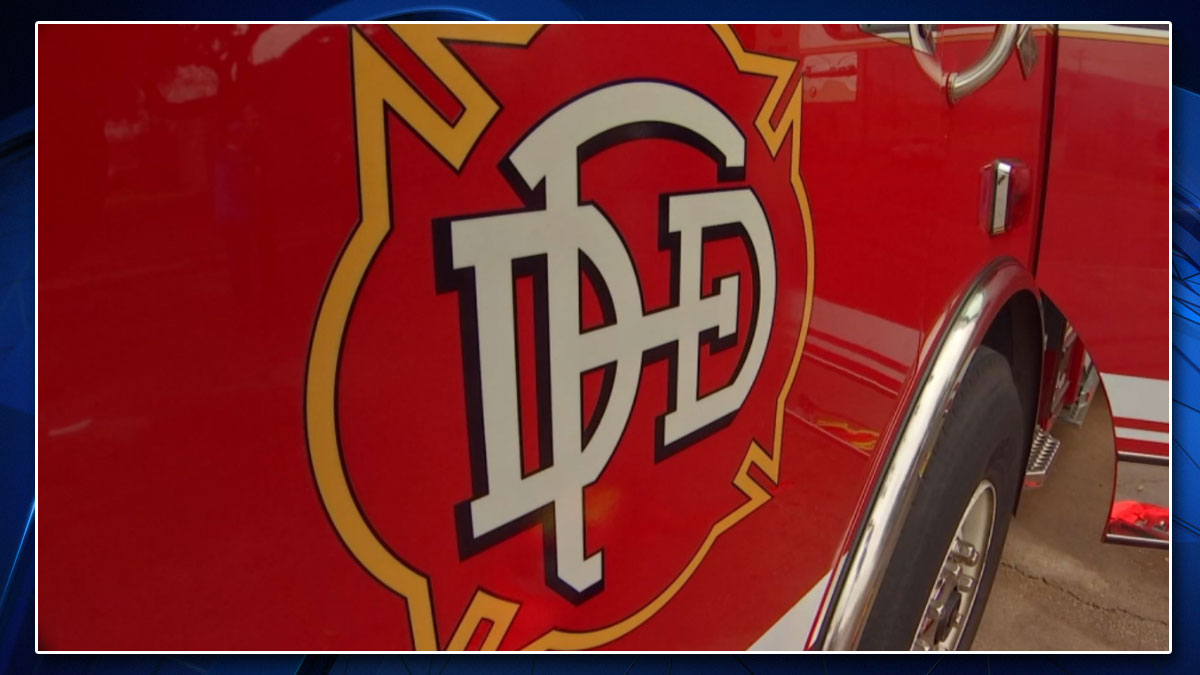Rather than a colorful sky filled with fireworks, this year's Fourth of July celebration in Fort Worth and Panther Island will be remembered by images of burning grass. Organizers had to cancel the event after the grass along the river caught on fire within the first seven minutes of the show, posing a threat to the remaining fireworks.
Tuesday afternoon during a news conference at the Bob Bolen Public Safety Complex, Fort Worth Fire Chief Jim Davis outlined what took place on Monday night and said they followed the emergency plans.
Watch NBC 5 free wherever you are
"I understand there's a lot of frustration in the community. I understand that there's a lot of sadness that the show wasn't completed last night, but there's been overwhelming support with the city leadership and the fact that this was the right decision at the right time, considering the situation that was developing," said Davis.
He said it was a joint decision between the Fire Marshal and the operator of the firework display to end the show.
Get top local stories in DFW delivered to you every morning with NBC DFW's News Headlines newsletter.
Magic in the Sky, a San Antonio-based company, was permitted to put on the event and had been planning with the city for months.
He said the Tarrant Regional Water District had been prepping the grass by making sure it was cut low and watering but says the change in wind pattern dried it out.
As to why the event even happened given the dry conditions, Davis said they followed the National Fire Protection Association guidelines, which he said say nothing about the heat. He said it does mention wind, and gusts between 20-to-25 miles per hour may be a reason to cancel a fireworks display, but that was not the case on Monday.
Local
The latest news from around North Texas.
Davis said they followed the NFPA standards, which included making sure there's good communication, weather monitoring, surveying the site, crowd control and emergency plans in place for any issues.
The chief said Magic in the Sky was responsible to have a water cannon and put out small grass fires that occur, and are expected to happen during a show. He said it became obvious that the grass fires continued to burn, and they were worried about the 1,000 remaining shells of fireworks. Some of the mortars and cakes, the plastic tubing used to shoot up fireworks, were damaged.
Davis said the show stopped to assess the situation. They had to let the remaining embers fall before firefighters, stationed in brush trucks at the site, could get close enough on four-wheel-drive vehicles to access the issue.
"Our first priority was not the grass fires along the river. The first priority was to put people at the site where the remaining shells were to try to protect that. Once that was taken care of, then they went about extinguishing the rest of the grass fires along the river. That's the way we pre-planned things like that and we stand by that decision," said Davis.
The concern is that if the fire reached the remaining fireworks, the could explode in different directions and become a major hazard to those watching on the other side of the river.
Davis said around midnight there was a second round of fireworks shot off as a way to dispose of some of the mortars. In the morning the company began tearing down and removing the reminder off-site.
He said they plan on reviewing what took place to help assess for the following year. There's currently no discussion, that he's aware of, about changing location.
Besides Panther Island, Fort Worth Fire Fighters were extremely busy, dealing with about
Responded to about 1,155 calls in a 24-hour period. About 250 of them were grass fires of some form that were caused by the illegal use of fireworks. Davis said they had to triage the calls, meaning dispatchers asked more questions to assess if a grass fire was threatening building, life or other hazards.
The chief said there were several structure fires too. One included an apartment building in which Davis said was a direct result of a sparkler that set the grass and side of the building on fire.
In comparison to the freeze last year in February and the number of calls they received, Davis said the 4th of July was similar, not quite as busy, but they used lessons learned from 2021.
"The experiences that we learned and gained from the cold weather in having multiple requests for services and limited resources, we put a lot of those into play. And what did that include?" Davis said. "Things like deferring people off the 911 system, except for the most time-critical emergencies, putting in additional assets on the street, putting additional dispatchers in and began utilizing some of the things that we learned from the cold weather in order to try and get to all of the different requests and make sure that they were prioritized they were handled and mitigated without causing further problems to the community."




